- Vending machines that sell cannabis through fingerprint recognition, intelligent vaporizers, increasingly sophisticated concentrates and products based on terpene analysis are just some of the innovations set to revolutionize the cannabis market in the short/medium-term.
- Find out where the industry is heading and the innovations that will be available in the months to come.
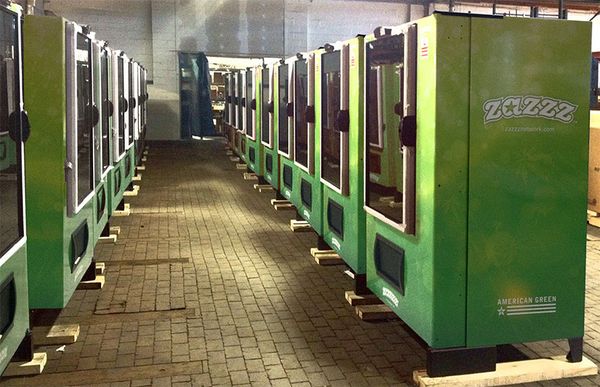
As legalisation makes its way in more and more countries, the cannabis industry grows stronger. With medical and recreational marijuana sales expected to reach $23 million by 2020 in the US alone, we can definitely say that the new green fever is here. Thus, more and more products and technological innovations are developed with a view to improve the users' experience. Get a taste of what's to come.
One of the fields that has seen more progress is definitely terpene extraction, which is key for developing customised products for weed users. Although cannabinoids tend to be at the heart of every marijuana conversation, terpenes play a major role too, both in the composition of strains and when it comes to tasting: without these compounds that give plants their fragrance, Blueberry wouldn't have its unique fruity aroma and Cheese would lack its signature smell. No wonder then that many cannabis users choose their strains based on the aroma these molecules give off.
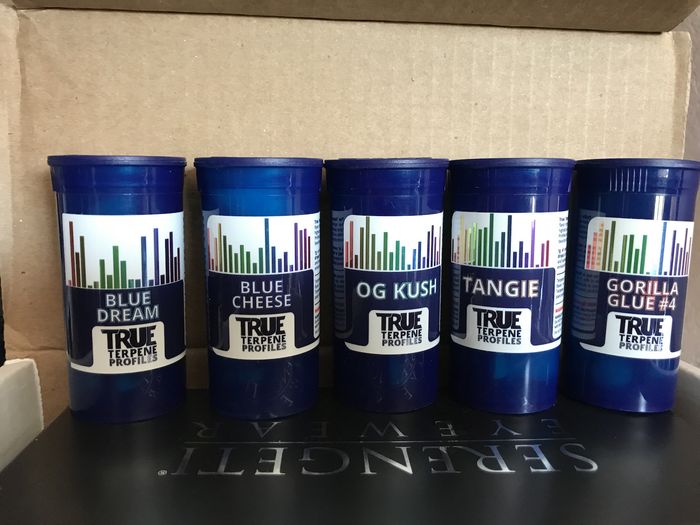
Luckily for cannabis lovers, terpene extraction is already a fact and, based on the research carried out by the fragrance industry over the years, the cannabis professionals have developed the technology and methodology necessary to make extraction an effective process.
Companies such as Blue River, River Terpenes, Evolab and The Werc Shop are already working on terpene extracts and have developed two types. One of them is a compound isolated from the main terpenes of a plant, so that the predominant aroma of a given strain becomes an essence that can be used to scent a room or for the creation of products such as scented candles and oils.
But these companies work also on extracts that replicate the very scent of plants, with all their nuances and specificities, combining the various terpenes in the right concentration. The ultimate aim is to reflect the essence of the various strains, honing them into extracts for teas, edibles and oils. This second type of extract is still under development, but as legalisation progresses, obtaining the exact scent of a given strain will become a reality and one of the future hits in the cannabis industry.

Concentrates are in vogue
Along with extracts, concentrates will also gain in importance in the cannabis market, according to experts. Although many cannabis users prefer the old good joints, concentrates have a much higher THC content than buds: while the most potent strains contain about 25% THC, the percentage in concentrates ranges from 65% to 90% depending on the technique used. Just as with terpene extraction, the legalisation wave and the growing investment in the industry are favouring the development and sale of these products, and words like Shatter, Budder, Resin, Fresh Frozen and Rosin Hash will soon be popular items on the shopping list of users.
That said, despite concentrates gain in popularity and become the new must-have for any weed lover, newbies should always be extra cautious when using them regardless of the consumption method - vaporization, dabbing, or as an ingredient in a dish - and always keep in mind their high THC content.
Technological progress in the field of vaporizers
Technology is taking off in more and more fields, and in the months to come new products and solutions that combine technology and marijuana will break into the cannabis market. The company Resolve Digital Health, for instance, is working on the first intelligent vaporizer: Breeze Smart Inhaler. With the aid of an app, this appliance identifies the different concentrates and strains that are fed into it, keeping patients informed at all times on the type and amount of medical marijuana they consume, all while allowing them to record their symptoms before and after intake for a more accurate assessment of the products that work best for them.
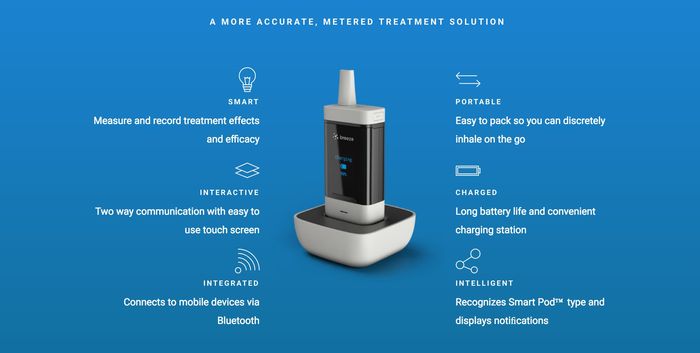
Besides, the data is stored anonymously on Resolve's server and used by the company's researchers to identify the strains that work best for each condition, an information that is then made available to doctors and breeders, who can make use of it for prescription and strain enhancement purposes respectively.
And they are not alone in their belief that data is the future of the cannabis market. Companies like PotBot are also set to transform the industry through information. This start-up has developed an app where medicinal cannabis users can introduce their symptoms to obtain feedback on the cannabis strain that best suits their condition.
But the system does not merely suggest a strain that fights insomnia, for instance, it also prompts the user to enter data regarding their tolerance to high THC concentrations or the problems experienced in the past with a seed in particular. With the first version available from the end of 2016, the overwhelming tide of legalisation will mark the triumph of these types of solutions that are set to light the way for new users and become must-have apps for their smartphones.
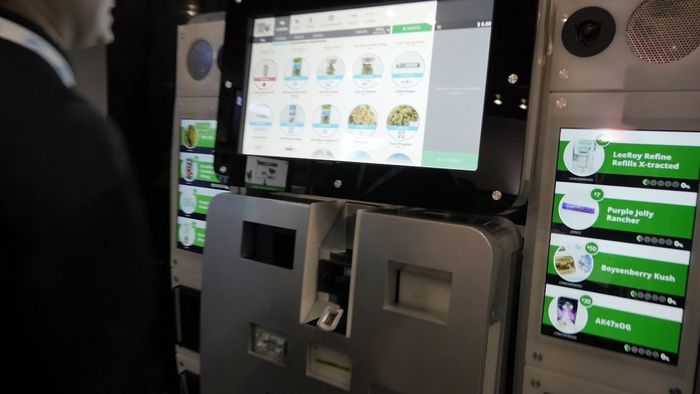
Vending machines, drones and even robots
Cannabis vending machines are yet another innovation that will hit the market in the months ahead. These machines are actually nothing new, as cities like Seattle and Vancouver use them already to distribute cannabis products, but always under the supervision of a staff member who is responsible for checking the identity of the buyers.
The company American Green, however, has gone one step further and has developed a prototype that will use biometric identification during the sale process. According to the company, these machines will make things easier for the users that are in need of marijuana but feel ill at ease when interacting with sellers - due to their position in the community or whatever other reason - as they will be able to get the product through fingerprint, face and eve iris recognition.
Robots are becoming increasingly present in our everyday life too, hitting even the cannabis market in the form of crop guards. At least this is how the cannabis manufacturer Canndescent protects its acres and acres of marijuana fields in Desert Springs (California). These guard robots, small autonomous vehicles developed by the technological company Sharp Intellos, patrol the fields at night and, even if for now they are only used to detect anomalies and inform the human staff when necessary, the developers are considering the possibility to include a new feature: a pepper spray to keep thieves at bay.
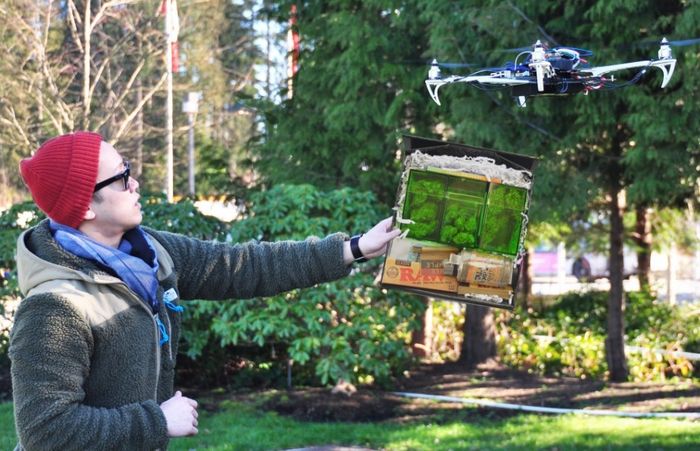
But Canndescent is not the only cannabis company to have explored the possibilities of artificial intelligence. Recently, the marijuana provider Eaze demonstrated drone delivery at the So-Cal Cannabis Cup in San Bernardino (California), and even if this dispatch method is still in beta stage, Eaze intends to implement it as soon as possible with a view to speeding up shipping across the state. These small appliances have aroused the interest of some American start-ups, which are now considering the possibility of selling cannabis in regions where sale and consumption are not allowed. The idea, however, clashes with the federal regulation on flights, which prohibits the transport of certain substances via drone.
In view of these innovations, and with the phasing out of research restrictions, the future of the cannabis industry seems to lie in the development of an increasingly wider range of products and technology solutions aimed at simplifying the life of users. A green future indeed.



Comments from our readers
There are no comments yet. Would you like to be the first?
Leave a comment!Did you like this post?
Your opinion about our seeds is very important to us and can help other users a lot (your email address won't be made public).